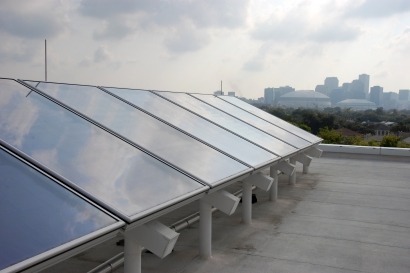
The guidelines will support EU member states in reaching their 2020 climate targets while addressing market distortions that may result from subsidies granted to renewable energy sources. To this end, the guidelines promote a gradual move to market-based support for renewable energy.
They also provide criteria on how member states can relieve energy intensive companies that are particularly exposed to international competition from charges levied for the support of renewables and include new provisions on aid to energy infrastructure and generation capacity to strengthen the internal market and ensure security of supply.
“It is time for renewables to join the market” said EC Vice President in charge of competition policy Joaquín Almunia. “The new guidelines provide a framework for designing more efficient public support measures that reflect market conditions, in a gradual and pragmatic way. Europe should meet its ambitious energy and climate targets at the least possible cost for taxpayers and without undue distortions of competition in the Single Market. This will contribute to making energy more affordable for European citizens and companies.”
The growth of renewable energy over the last few years, partly encouraged by public support, has brought serious market distortions and increased cost to customers. This is reflected in the new guidelines which will be valid from 1st July 2014 until the end of 2020. Key provisions include gradual introduction of market-based mechanisms, promotion of competitiveness, support for cross-border energy infrastructure and aid to secure adequate electricity generation when there is a real risk of insufficient electricity generation capacity.
A pilot phase in 2015 and 2016 will allow new technologies to test competitive bidding procedures in a small share of their new electricity capacity. There may also be a gradual replacement of feed-in tariffs by feed-in premiums which will expose renewable energy sources to market signals. Small installations will benefit from a special regime while still being supported with feed-in tariffs or equivalent forms of support.
The guidelines will allow the reduction of the burden for a limited number of energy intensive sectors defined for the whole EU. Member States will also be allowed to reduce the burden on highly energy intensive companies in other sectors.
It is foreseen that several categories of environmental and energy aid measures will be included in the upcoming revision of the General Block Exemption Regulation. This will make it easier and quicker for public authorities to implement such measures since they do not need to obtain prior approval by the Commission. Examples of these measures include certain forms of aid to promote of renewable energies or district heating, to clean up contaminated sites or to improve energy efficiency in buildings.
For additional information:

